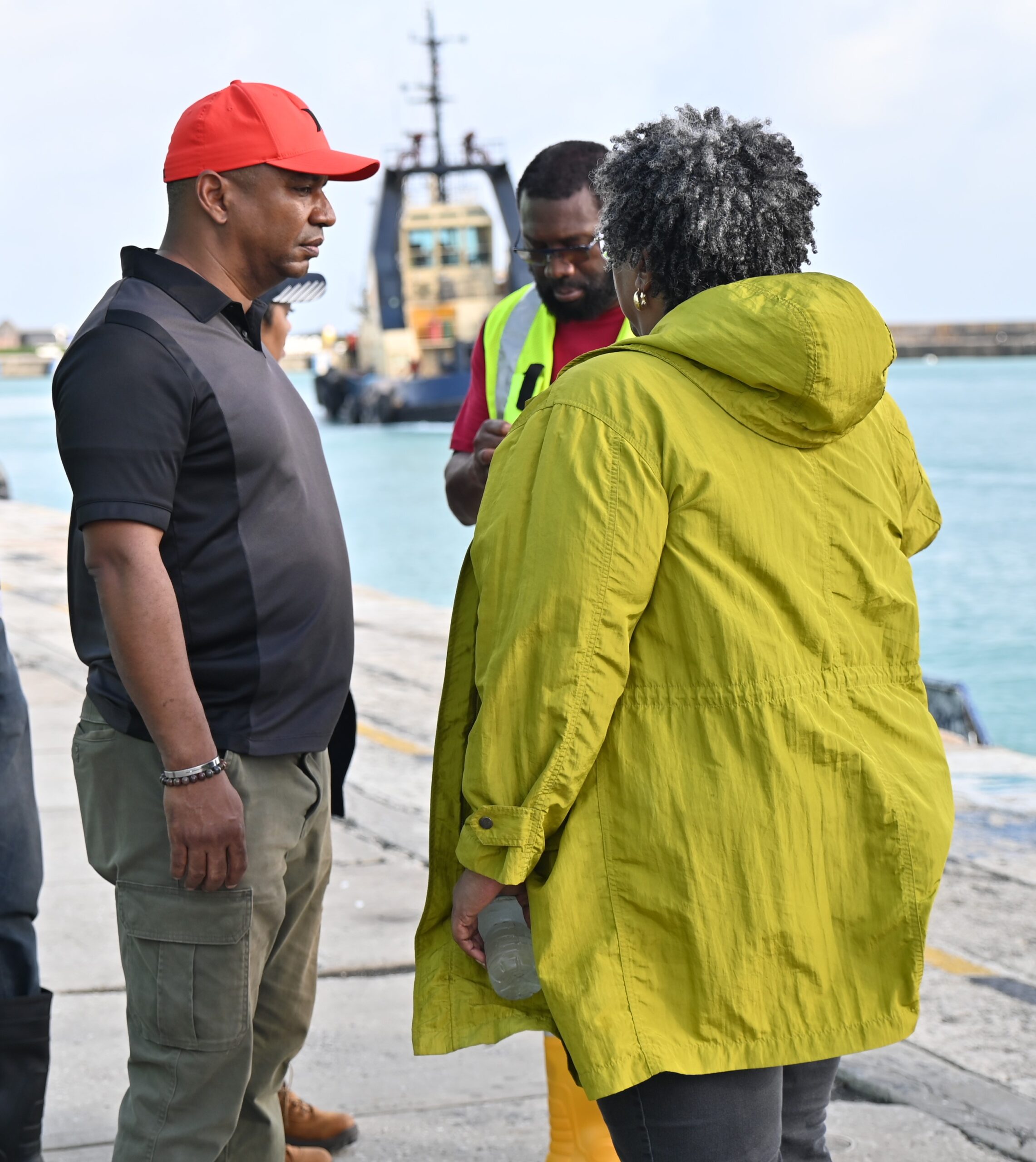Government Considers Legislation for National Shutdown Breaches During Emergencies, Minister Abrahams Suggests

July 4, 2024
Government considers legislation to prevent breaches of national shutdowns during emergencies or disasters. Minister of Home Affairs highlights concerns about premature exits from hurricane shelters and stresses the importance of following safety protocols.
The government is considering legislation against breaches of national shutdowns during emergencies or natural disasters, Minister of Home Affairs Wilfred Abrahams has indicated.
He declined to say more than that a law may be required to deal with the issue, but expressed concern about people venturing out before the all-clear was given, including those leaving hurricane shelters prematurely on Monday when Hurricane Beryl pounded the island with heavy rains and storm-force winds.
“If you are among the vulnerable persons that we have to consider and you are in a shelter, we can at least know that you are safe where you are. We can deal with anything else after that. If you do not take the advantage of the shelters and you stay at home and then you run into difficulties, as some people did, then we have to be putting resources to try to get you to a shelter,” the minister told reporters at a stakeholders’ press conference.
“When you are in a shelter… it is for the duration of the event. Some persons, after things started to ease off before the all-clear, wanted to leave and go home and check on their property. They wanted to go home and get back in.”
The minister recalled that those people were told it was not safe to be on the road, but that the warning fell on deaf ears.
“Two people who insisted on going together, they left and got home and realised their house had been destroyed and they turned around and came right back to the shelter,” he said.
Abrahams then turned his attention to the 2 p.m. all-clear and issues that arose in the immediate aftermath of the hurricane’s passage.
“We had an extended period of lockdown. We were being called all the time and people were asking when is the all-clear going to be [given]. What you may not realise, [is that] in many instances, that because it appears safe where you are, it may not be safe somewhere else,” the minister said.
“One person called saying there is nothing going on by them and they felt they should be allowed to leave home, and at that point in time, somebody’s roof is coming off somewhere else. For the persons who decided to go on the road during the event and before the all-clear was lifted, you put the emergency services at risk if something happens to you out there which could have been avoided if you stayed home.”
He explained the risk assessment involved in determining the all-clear: “We need to ensure that bridges are not broken away, we need to ensure that the road is passable, we need to be able to advise as to where the down power lines are; we need to be able to ensure that you are safe. And the all-clear is only given when those in this room [emergency services personnel] decide that it is actually safe for Barbadians to go out and go about their normal business.”
Despite these issues, Abrahams gave a positive assessment of the emergency response.
“I am happy with the arrangements for the most part that were made in advance of this storm. It is a moving process. We are not going to get it right a hundred per cent of the time, but what we have to do is learn from the experience,” he said.
The minister also praised the media’s role in informing the public.
“I don’t think Barbadians have ever gotten as much information prior to, during a storm or during an event as you got over Beryl. And that was a collaboration between all of the information centres in Barbados.
“It was us understanding that we were making a presentation and performing a service in the interest of Barbados and Barbadians and getting all of the information out, so Barbadians had credible information and knew exactly where to get their information from,” Abrahams said.
emmanueljoseph@barbadostoday.bb


